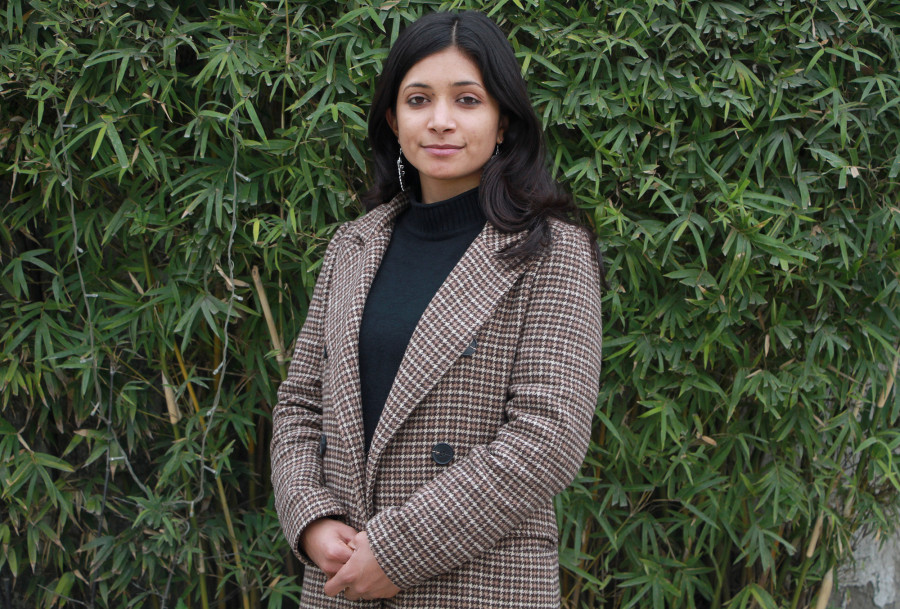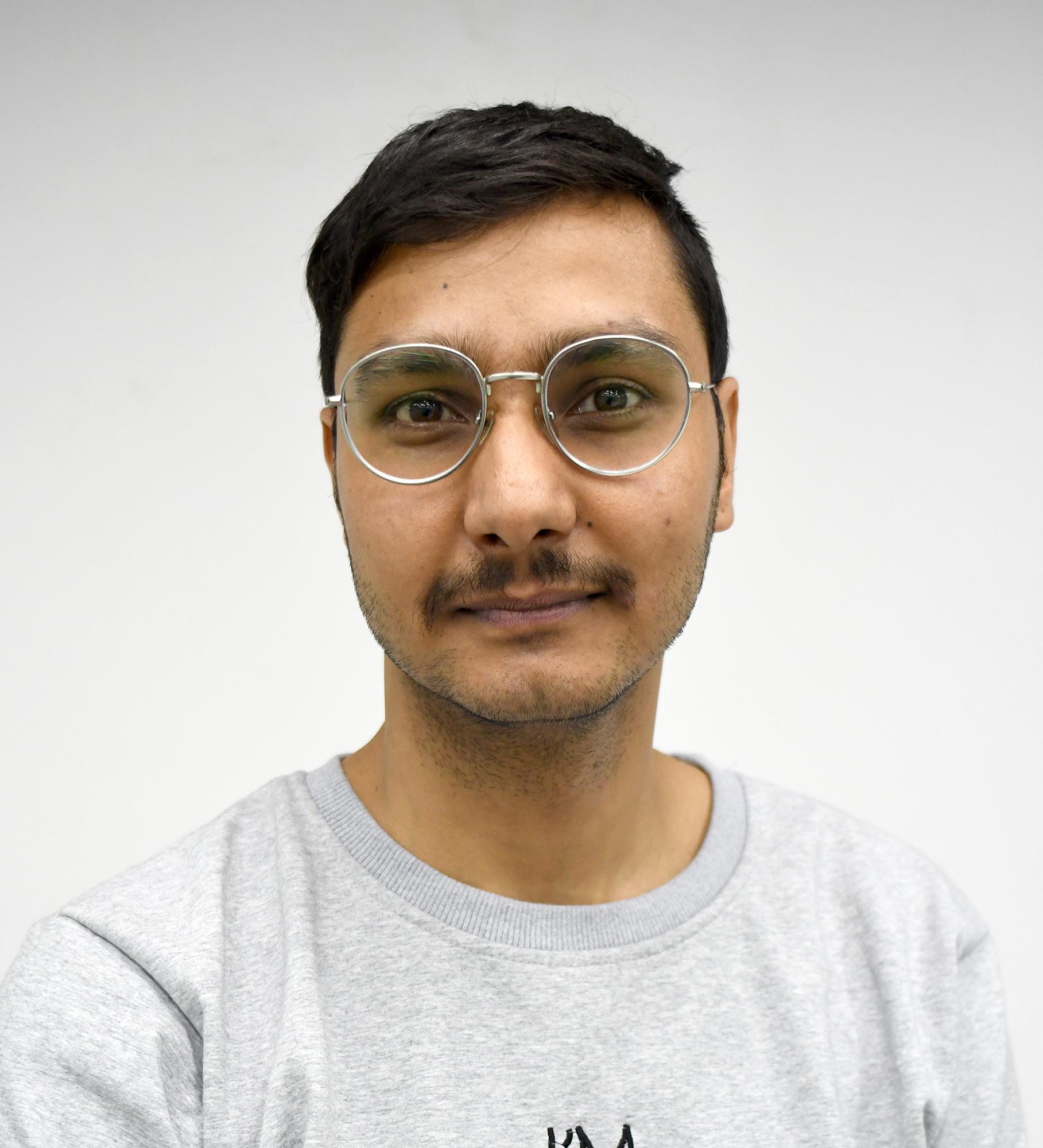Books
'Good writing shapes people’s thoughts; it initiates public discourse'
Durga Karki speaks about her new book Kumari Prashnaharu, what drives her to write and the power writing has in today’s world.
Shashwat Pant
When you talk about writing with Durga Karki, you can see a spark in her eyes. “I like writing and talking about writing. It makes me feel alive,” she says. “Writing has taught me a lot over the years about people and life.”
Despite having a deep interest in writing since a young age, Karki, who is a lawyer by trade, had never thought that she’d become a writer. Yet, her writing has been read and garnered praise, especially her articles published on Setopati, an online news portal. She also recently released her first short story collection titled Kumari Prashnaharu.
To speak about her book, her writing process and more, the Post’s Shashwat Pant caught up with Karki recently. Excerpts:
Your first encounter with a book?
I got into books because of my father who was a teacher. As he was interested in literature, he gave me the books he used to read when he was a child. Books like Garima and Madhupark had really interesting stories which kept me busy all day. I don’t think he gave me books in the hope that I’d become a writer someday. I feel that he made me read books so that I would not go outside and play in the mud or fight with kids. Whatever the reason, I fell in love with words.
What about writing? When did you start writing?
Like many writers, I started young. When I was 10, I started writing poems. But unlike others, the poems I wrote were not romantic; they mostly focussed on societal issues. After poems, I moved to writing ghazals.
When it came to stories, my first memory is of me writing a story of a chicken when I was 15. That story was based on the life of a chicken in my house. After writing it, I orated it to my grandmother. She loved it. And that gave me the confidence to share it at my school’s assembly. Everyone at school liked it. The responses paved the way for me to take part in various writing competitions. Those competitions helped me develop as an amateur writer. And since then I’ve never stopped writing.
When did you realise that you could write?
I remember writing three long letters to my parents telling them how I feel. The reason I wrote the letters was because I wanted to tell them things that I couldn’t say in person. I felt more comfortable expressing myself through writing than speaking. When I went through those letters afterwards, then it gave me that assurance that I could write.
What is the difference between writing a book and writing opinions for a news portal?
There are a lot of differences. Books give me creative space. I can develop the characters in my own manner and define the setting however I want to. But when it comes to opinions, I have to be more vigilant with what I write. It’s more fact based and focuses on only one issue. Whereas when writing a book I can focus on multiple issues in my own manner. I think journalism has taught me that as a writer I need to show more empathy and observation so that I can be objective and not subjective.
How long did it take to write your recently released book?
This is a collection of all of my stories. I had never planned to release a book. This book has stories which I wrote when I was 17 to when I was in my early 20s. My mentor Kedar Sharma always urged me to keep writing and archiving my stories so that I could publish a book in the future. And I think readers will realise that. I feel that I have evolved as a person and as a writer. It’s been a great learning curve. When I started to assemble the stories, the one thing I kept in mind was to ensure that things I wrote in my teens were still relevant now. Most of the stories are based on social realism.
What is your writing process like?
My writing process is very random. People have told me how they develop characters and get into it before they begin writing. But for me, I don’t do that because my stories are mostly based on social realism.
Whenever I have an idea, I initially think about how I can represent it in the best manner and then start writing. I don’t like dwelling on an idea for long. If I dwell, the idea is lost. It’s the same for both nonfiction and fiction. I spontaneously write, then arrange it later on. Some of the stories in my book have been written in two days.
When an issue comes to my mind, I try to find a character who is nearest to the issue in real life and try to study that person. After doing that I begin writing. I just add some imagination to the real life story to make it interesting. I like adding flavours to the stories. I feel that when I start writing, I get into a zone where I don’t need to think. It comes naturally, which is why I love writing so much.
What do you prefer writing? Fiction or non-fiction?
Both are different and I enjoy writing both fiction and non-fiction. But I have more fun writing fiction. The creative space gives me freedom. But I also like writing non-fiction when I fulfil my purpose. When it comes to probability, there is also talk of the efforts. I put in double the effort to write fiction compared to non-fiction. There are a lot of things to keep in mind when you’re writing fiction because I want my audience to enjoy my writing, which is why until I don’t enjoy my writing I don’t publish it.
Was it a struggle to get into writing?
I was fortunate that I didn’t have to struggle. That is thanks to me writing blogs and opinions for Setopati. Non-fiction established me as a writer. People found out about me through my non-fiction work. For me personally, I didn’t face any trouble as a writer. I was not discriminated against. But that might not be the same for others. But I feel that if a person is a good writer, s/he will always get opportunities. Our society has evolved, I feel.
Do you feel that through writing you can change society?
Before when I was just a reader, I felt that nothing could change. But gradually when I started writing I felt that the pen had the power to change the world. My piece about how Dashain had changed in the villages due to people living in the city was received well. But my review of Chakka Panja 2 generated a lot of response. It was an open letter to Deepak Raj Giri and Deepa Shree Niraula from a woman’s perspective. It made me realise that writing is influential and it influences people’s opinions and shapes people’s thoughts. It makes people think. I’ve seen that in myself and others as well. It initiates public discourse.




 14.24°C Kathmandu
14.24°C Kathmandu










